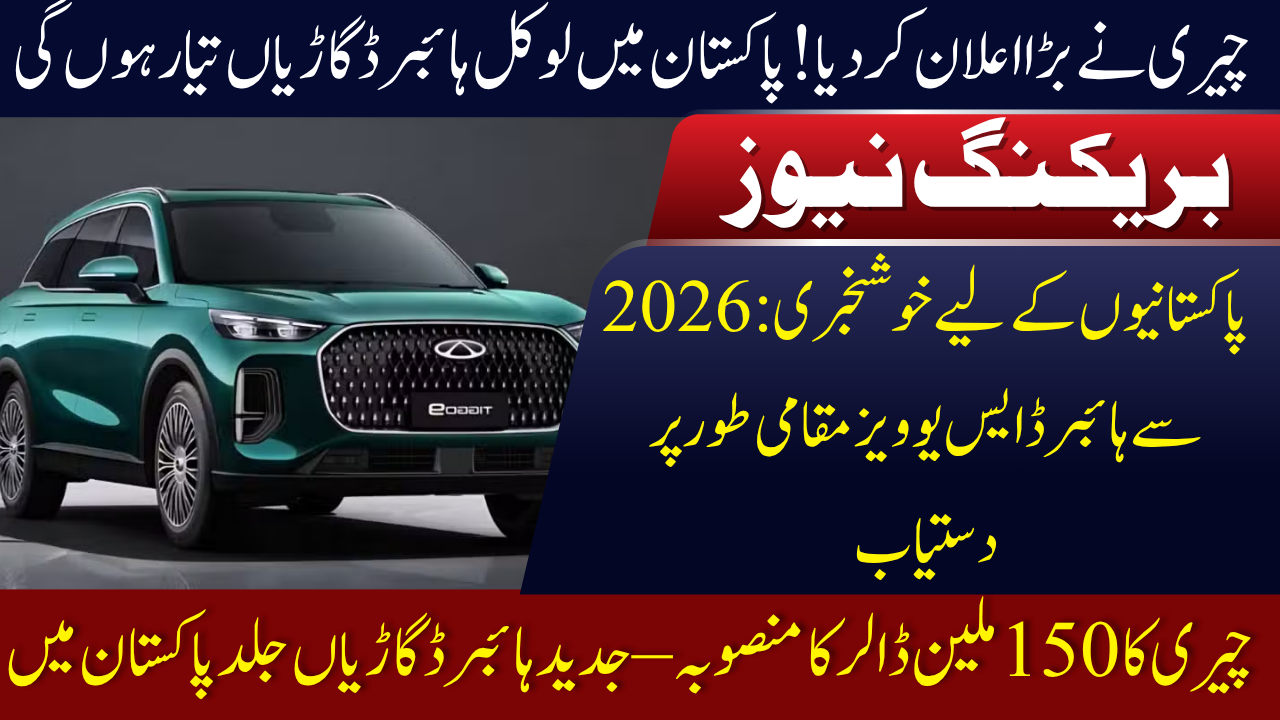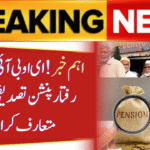Chery to Soon Start Local Assembly
The automotive landscape of Pakistan is about to experience a major transformation as Chinese automaker Chery, in collaboration with its partner Chery Master Pakistan, prepares to launch local assembly of vehicles. The company has confirmed that assembly operations will begin by January 2026, with a strong focus on hybrid and plug-in hybrid electric vehicles (PHEVs). This development signals growing confidence in Pakistan’s potential as a hub for new energy vehicles (NEVs).
Investment and Assembly Plant
Chery Master is investing an estimated US$150 million to establish local assembly operations at a massive facility in Port Qasim, Karachi. Spanning more than 60 acres, this plant will be capable of producing multiple models and supporting large-scale automotive operations.
The initial plan includes the local assembly of four flagship SUV models:
- Tiggo Cross
- Tiggo 7
- Tiggo 8
- Tiggo 9
All of these models are expected to feature plug-in hybrid technology, giving customers a mix of electric driving capability alongside traditional fuel engines.
Dealership and Market Expansion
To complement local assembly, Chery also plans to significantly expand its dealership and after-sales network. Around 10 new showrooms will be set up across seven major cities in Pakistan. This expansion aims to improve customer access to sales, spare parts, and maintenance services, which is critical for building consumer trust in hybrid technology.
Quick Detail Table
| Feature | Details |
|---|---|
| Assembly Start | January 2026 |
| Investment | ~ US$150 million |
| Location | Port Qasim, Karachi |
| Facility Size | Over 60 acres |
| Models to be Assembled | Tiggo Cross, Tiggo 7, Tiggo 8, Tiggo 9 |
| Technology Type | Plug-in Hybrid Electric Vehicles (PHEVs) |
| Dealership Expansion | 10 new showrooms in 7 cities |
| Workforce | Training for around 2,000 workers |

Why It Matters
This announcement is not just about one company—it has the potential to influence the entire automotive industry of Pakistan.
- Affordable Hybrids: By assembling vehicles locally, import duties and shipping costs are reduced. This could make hybrid cars more affordable for middle- and upper-middle-class buyers.
- Job Creation: Over 2,000 workers are expected to be trained in the latest hybrid technologies, boosting skills development.
- Environmental Benefits: Hybrids consume less fuel and release fewer emissions, which is essential for improving air quality in urban centers.
- Industry Growth: Local assembly encourages other manufacturers to invest, increasing competition and innovation.
Challenges to Overcome
While this is a positive step, there are still significant challenges ahead:
- Infrastructure: For plug-in hybrids to succeed, Pakistan will need more charging stations and reliable electricity.
- Pricing: Even with local assembly, hybrid SUVs may remain expensive compared to conventional vehicles.
- Consumer Awareness: Many buyers still lack understanding of hybrid technology, leading to hesitation in adopting it.
- Policy Support: Government policies on taxes, duties, and subsidies will play a critical role in making hybrids attractive.
Possible Market Impact
If successful, Chery’s local assembly could pave the way for Pakistan to adopt New Energy Vehicles (NEVs) at a larger scale. Other automakers may also accelerate their own plans for hybrid and electric models, creating more options for buyers. With Pakistan’s growing urban population and increasing fuel prices, demand for fuel-efficient alternatives is expected to rise.
Final Thoughts
The decision by Chery to begin local assembly of hybrid vehicles in Pakistan is a bold and forward-looking move. It aligns with global trends toward sustainability while addressing Pakistan’s demand for advanced yet practical mobility solutions.
By January 2026, Pakistanis may see locally assembled Tiggo SUVs on the roads, offering a blend of affordability, fuel efficiency, and cutting-edge hybrid technology. The success of this venture will depend on effective execution, strong after-sales support, competitive pricing, and supportive government policies.













